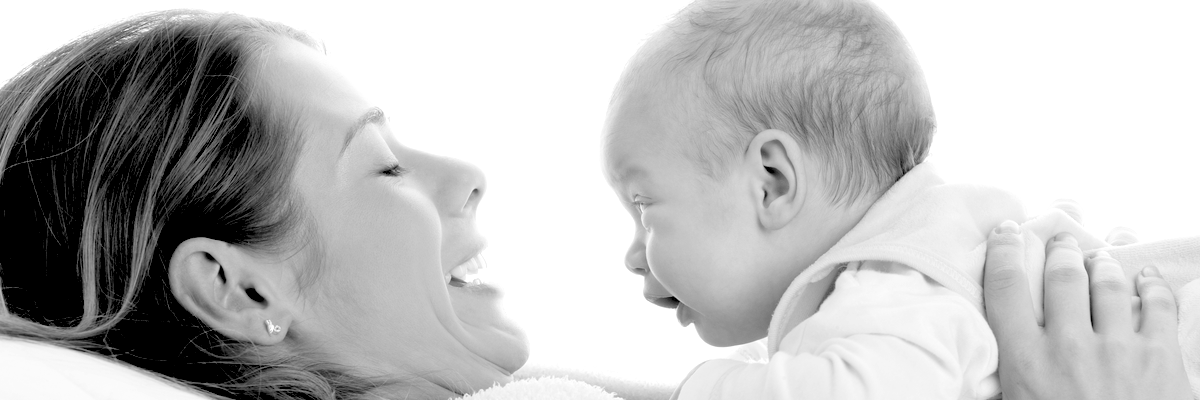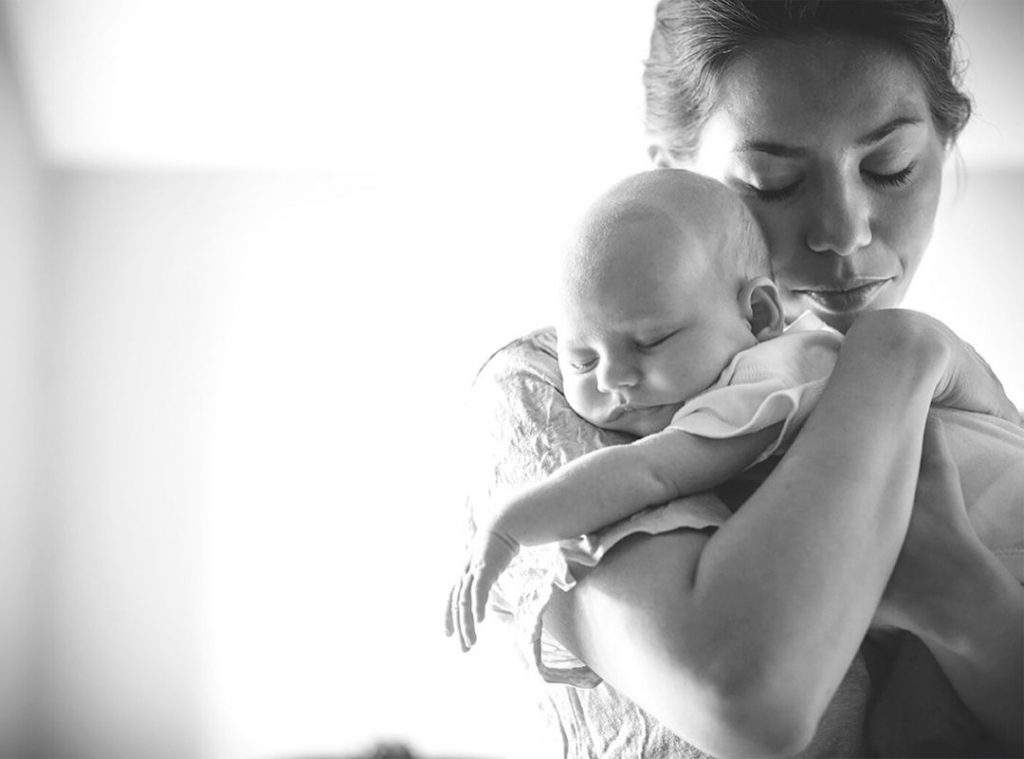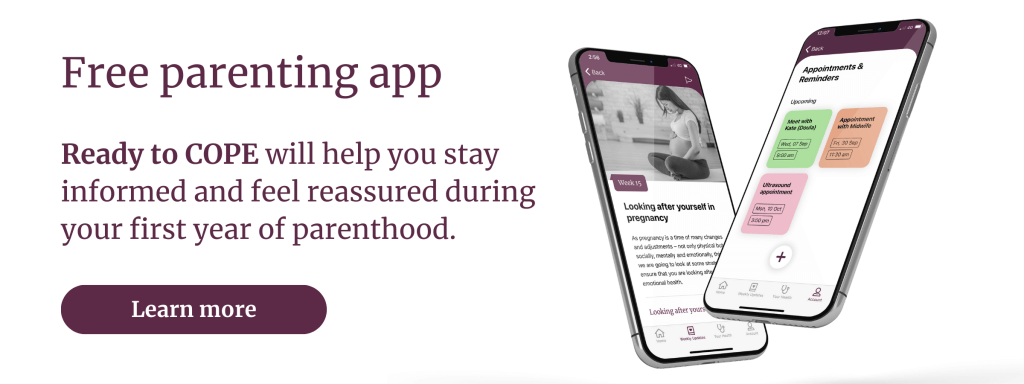Adjusting to parenthood

Adjusting to parenthood and life with a newborn baby brings many changes and challenges.
I was ill prepared emotionally to be pregnant or to be having a baby, and my husband was ill prepared too. We muddled along doing all the “right” things but we were confused and lost and it was not a joyous time.
Coping with different routines and what is often a very steep learning curve can take a lot of energy. And sometimes, that is energy you simply don’t feel you have.
Your newborn baby may or may not be the bub that you expected or imagined. For example, some babies will be very settled, while others will take time and may cry a lot – demanding great patience and commitment. This is particularly the case if your baby has health problems like colic or reflux that can cause them to be more unsettled.
I knew that life had changed. But we were the first among our friends to have babies. I had no nieces or nephews; no reference point… I knew that life was going to be hard, and different, and I would struggle with being in the house 24 hours a day with my new role.
New parenthood is a time when life can feel overwhelming
You may have moments in early parenthood when things feel out of control. It’s normal, too – particularly for first time parents – to experience fleeting doubts as you find yourself constantly learning and adapting in these first weeks.
I thought it would be hard… But I thought, I won’t be at work – this is what I will be doing. But I thought I would cope. I certainly wasn’t expecting it to be all fun and easy, but I obviously thought it would be more enjoyable. I didn’t think I would have trouble coping.
Coping with your newborn baby
Most people find the first six to eight weeks to be the hardest with a new born baby. And while people may not openly discuss many of the challenges in these early weeks of parenthood (if at all), there are a number of common hurdles you may face at this time.
The greatest challenges commonly experienced by parents in their first weeks include:
- Recovering from birth. This is particularly challenging if birth has been traumatic or your were highly dissatisfied with the quality of care you received.
- Breastfeeding and bottle feeding. Feeding your baby may come easily to you. Or, it may be yet another challenge, and different to what you expected or hoped for.
- Lack of sleep. This can greatly affect your mood, energy, patience and ability to think clearly.
- Feeling highly emotional. This can be compounded by lack of sleep and feeling that things are out of control.
- Coping with an unsettled baby. Babies all come with unique temperaments which can bring additional demands on your patience and feelings towards your baby.
- Bonding with your baby For many reasons, it may take longer than you expected to develop a connection with your baby.
- Body image. Pregnancy and birth can bring possible changes to the way women may look and feel physically. This in turn can impact on our self-esteem and body image.
- Managing priorities. Finding time for everything whilst also meeting the needs of your baby might mean that you need to let some things go for a while.
- Managing advice from others. Endless newborn and parenting advice can leave you questioning yourself and your capabilities. Trust yourself as the expert on your baby.
- Relationship dynamics with your partner. These are also constantly changing as you begin to adjust and accommodate life with your new arrival.
- Relationship dynamics with your family. Not only are your expectations of parenthood likely to be adjusting, but so too are those of family and friends. As part of this transition, you will all begin to see where and how everyone fits into the new picture.
Seeking practical and / or emotional help early can help with adjusting to parenthood
These are common challenges faced by many mothers and fathers when adjusting to parenthood. Often, however, new parents don’t seek practical and/or emotional help early, and their impact can build up over time. This can place you and your partner and baby under even greater stress.
I felt like I was already a failure as breastfeeding was not working well and I didn’t want to have to admit to anyone any more failing. I was already feeling little bond with the baby, thinking that I was a horrible, useless mother.
It’s important to remember that these issues are common and with help can be mastered. Or, alternatives can be found to help you cope and reduce your level of distress.
Coping with a messy house
“Don’t worry about the mess! The dishes can wait! Enjoy them while they’re little.”
Leaving the washing to pile up and being told not to stress about a toy-strewn living room is advice often given to new parents. But for many exhausted mums and dads, a messy house can be anxiety-provoking and make it difficult to enjoy your baby and other children.
Mums are told not to worry about mess, but it’s easier said than done.
My brain just doesn’t relax in a messy house.
This is often compounded by the fact that a new baby coincides with visits from family and friends and having more people through the house than usual.

Strategies to help you cope with a new born baby
If being told, “Don’t worry about the mess!” isn’t working, you’re not alone! Here are some other strategies that may help with adjusting to parenthood.
- Ask for help when visitors come over, even if it’s just getting them to pop on a load of washing.
- Have friends or family pay for a cleaner – even just once. This can make for a great baby shower gift. Don’t be afraid to suggest it when people ask what you need.
- Set aside 15 minutes at the end of the day to pick-up of toys/clutter. It will make you feel better in the morning!
- Break things down into smaller tasks. Don’t try to tackle everything at once. Instead, try to break things down, like tidying just one area at a time. You won’t get through it all but that’s okay. Take one step at a time.
- Be mindful that what you see on social media. Social media doesn’t always reflect real life. It’s easy to remove clutter from the frame, to choose a place that’s tidy to snap a photo and to present the image that everything’s under control. But remember, most mums are struggling to keep things clean and tidy . Just like you.
- Try to be kind to yourself. A messy house doesn’t mean you’re a bad mum, or that you’re failing at motherhood. You are likely to be directing your attention to where it matters most – the needs of your new born baby.
If my environment is tidy my mental state feels clear too.
Download Ready to COPE to help with adjusting to parenthood
Get timely, supportive newborn advice and reassurance throughout your first year of parenthood.
Download our free app new parents, Ready to COPE, from Google Play or the App store
Viewing this on a PC? Scan the QR code with any phone to download Ready to COPE.

